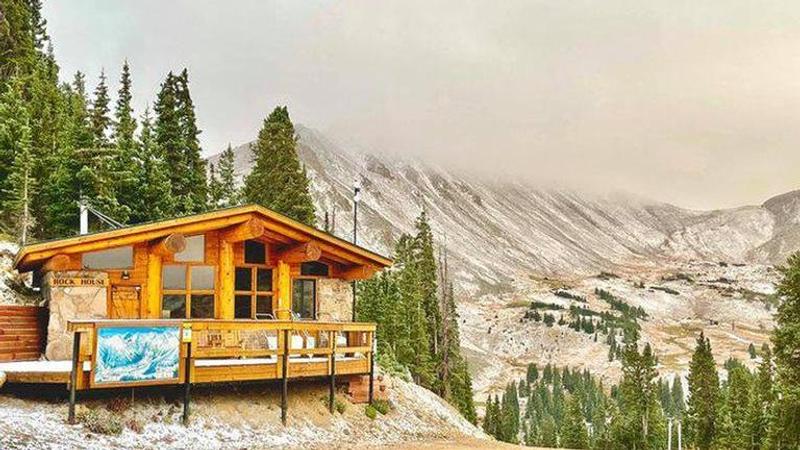Published 13:21 IST, September 22nd 2021
United States welcomes early winters as snow hits Rocky Mountains in Colorado
Weeks after witnessing a sweltering heatwave, United States has now been hit by early winters. On Monday, Rocky Mountain National Park witnessed snowfall.

Weeks after witnessing a sweltering heatwave, the United States has now been hit by early winters. On Monday, the Rocky Mountain National Park, located in the Central state of Colorado, witnessed more than two feet of fresh snowfall. The sudden fall also affected the iconic Trail Ridge Road, a highway that cuts through the National Park, leading authorities to close it for a brief time.
Late on Sunday, a cold weather front moved southward from Wyoming to Colorado, presenting a glimpse of early winters in the country. The National Weather Services (NWS) for Boulder municipality issued a frost advisory, mainly for Weld and Lincoln counties.
Mercury continued to remain low across the Rockies on Tuesday (local time). According to Xinhua, the temperature in Marble plunged to 26 degrees Fahrenheit in the wee hours of September 21. Areas in the vicinity also remained affected. Meanwhile, the snow fall was welcomed by skiers, who expect to start the sport in the coming two months. Multiple photos and videos that surfaced on the internet showed mountain peaks draped in white sheets of snow.
Effects of Climate Change?
The early winters come after a heat wave devastrated US and Canada in June. Recently, a climatologist from the University of Oxford, Frederike Otto said that Climate change played a key role in this extreme heatwave. Climate change has two sources, global warming and human-induced emissions like the burning of fossil fuels, energy consumption, synthetic agricultural methods, and deforestation. These sources have led to an unprecedented impact on the global climate leading to drastic temperature changes across the globe.
Scientists have observed two-times the expected rise in temperature on land. This has amplified the causing of desertification, wildfires, and heatwaves. According to Intergovernmental Panel on Climate Change, the global rise in temperature is about 1.2 degrees Celsius and at the same rate, it can rise to 1.5 degrees Celsius and beyond. Multiple independently produced instrumental datasets show that the climate system is warming, with the 2009–2018 decade being 0.93 ± 0.07 °C (1.67 ± 0.13 °F) warmer than the pre-industrial baseline (1850–1900). Currently, surface temperatures are rising by about 0.2 °C (0.36 °F) per decade, with 2020 reaching a temperature of 1.2 °C (2.2 °F) above pre-industrial.[13] Since 1950, the number of cold days and nights has decreased, and the number of warm days and nights has increased.
Image: tomwintermedia/Twitter
Updated 13:21 IST, September 22nd 2021




